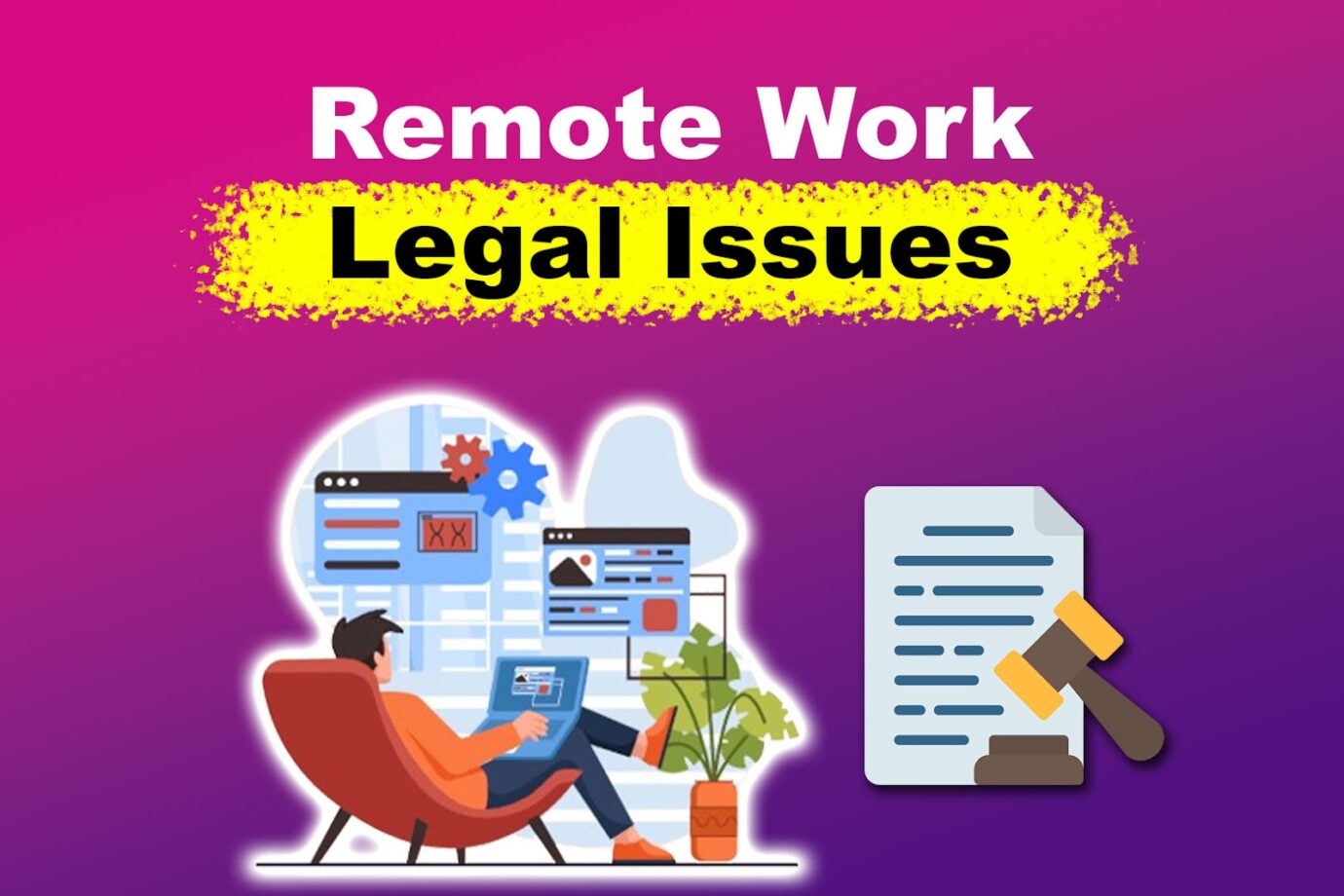Legal Implications of Remote Work: Addressing Employment and Cybersecurity Concerns
The COVID-19 pandemic has transformed the way we work, with remote work becoming the new norm for millions of employees worldwide. While remote work offers flexibility, convenience, and productivity benefits, it also raises various legal implications and challenges for employers and employees alike. From compliance with employment laws to ensuring cybersecurity and data protection, navigating the legal landscape of remote work requires careful consideration and proactive measures. In this blog, we will explore the legal implications of remote work, focusing on employment law and cybersecurity concerns, and provide insights into how organizations can address these challenges effectively.
Legal Implications of Remote Work:
- Compliance with Employment Laws: Remote work poses compliance challenges for employers regarding various employment laws, including wage and hour laws, workplace safety regulations, and employee leave entitlements. Employers must ensure that remote employees receive fair compensation for hours worked, adhere to statutory limits on working hours, and provide a safe and healthy work environment, even in a remote setting.
- Employee Classification: The classification of remote workers as employees or independent contractors can have significant legal implications for employers in terms of tax obligations, benefits eligibility, and liability for employment-related claims. Employers must accurately classify remote workers based on legal criteria, such as control over work, degree of independence, and integration into the employer’s business.
- Telecommuting Policies: Establishing clear and comprehensive telecommuting policies is essential for managing remote work arrangements effectively and mitigating legal risks. Telecommuting policies should address key issues such as work hours, performance expectations, communication protocols, data security requirements, and compliance with company policies and procedures.
- Remote Hiring and Onboarding: The shift towards remote work has implications for the hiring and onboarding process, requiring employers to adapt their recruitment strategies and procedures accordingly. Remote hiring practices should ensure fairness, transparency, and compliance with anti-discrimination laws, while remote onboarding processes should provide new hires with the necessary training, resources, and support to succeed in their roles.
- Employee Privacy and Monitoring: Employers must balance their legitimate business interests with employees’ right to privacy when monitoring remote work activities. Employers should establish clear guidelines and procedures for monitoring remote employees’ performance and conduct, ensuring compliance with privacy laws and respecting employees’ autonomy and dignity.
Cybersecurity Concerns of Remote Work:
- Data Security Risks: Remote work introduces new data security risks and vulnerabilities, as employees access sensitive company data and systems from remote locations outside the traditional corporate network perimeter. Employers must implement robust cybersecurity measures, such as encryption, multi-factor authentication, and endpoint security solutions, to protect against data breaches, unauthorized access, and insider threats.
- Phishing and Social Engineering Attacks: The remote work environment is particularly susceptible to phishing and social engineering attacks, as cybercriminals exploit vulnerabilities in remote employees’ devices, networks, and communication channels. Employers should educate remote employees about the risks of phishing attacks, provide training on identifying suspicious emails and messages, and implement email filtering and threat detection technologies to mitigate the risk of data loss and fraud.
- Bring Your Own Device (BYOD) Risks: The use of personal devices for remote work, known as Bring Your Own Device (BYOD), can pose security risks due to the lack of control and oversight over employees’ devices. Employers should establish BYOD policies and procedures governing the use of personal devices for work purposes, including device encryption, remote wipe capabilities, and acceptable use guidelines to minimize security risks and protect corporate data.
- Remote Access Security: Remote access to corporate networks and systems introduces vulnerabilities that can be exploited by cyber attackers to gain unauthorized access and compromise sensitive information. Employers should implement secure remote access solutions, such as virtual private networks (VPNs) and secure sockets layer (SSL) encryption, to safeguard remote connections and prevent unauthorized access to corporate resources.
- Compliance with Data Protection Laws: Remote work raises compliance concerns regarding data protection laws and regulations, such as the General Data Protection Regulation (GDPR) in the European Union and the Personal Data Protection Bill in India. Employers must ensure that remote work practices comply with data protection requirements, including data minimization, consent management, data localization, and breach notification obligations, to avoid regulatory penalties and reputational damage.
Engage with Dhiti Law Firm:
The legal implications of remote work extend beyond employment law to encompass cybersecurity concerns, posing complex challenges for employers in managing remote work arrangements effectively. To address these challenges, organizations must adopt a holistic approach that combines legal compliance, risk management, and technology solutions to protect their interests and ensure the security and privacy of remote employees and corporate data. By implementing robust telecommuting policies, training employees on cybersecurity best practices, and deploying advanced security technologies, employers can mitigate legal risks and safeguard against cyber threats in the remote work environment. As a leading law firm specializing in employment law and cybersecurity, Dhiti Law Firm is committed to helping organizations navigate the legal complexities of remote work and develop strategies to mitigate risks and ensure compliance with applicable laws and regulations. Contact us today to learn more about how we can assist your organization in addressing the legal implications of remote work and protecting your business interests in the digital age.


